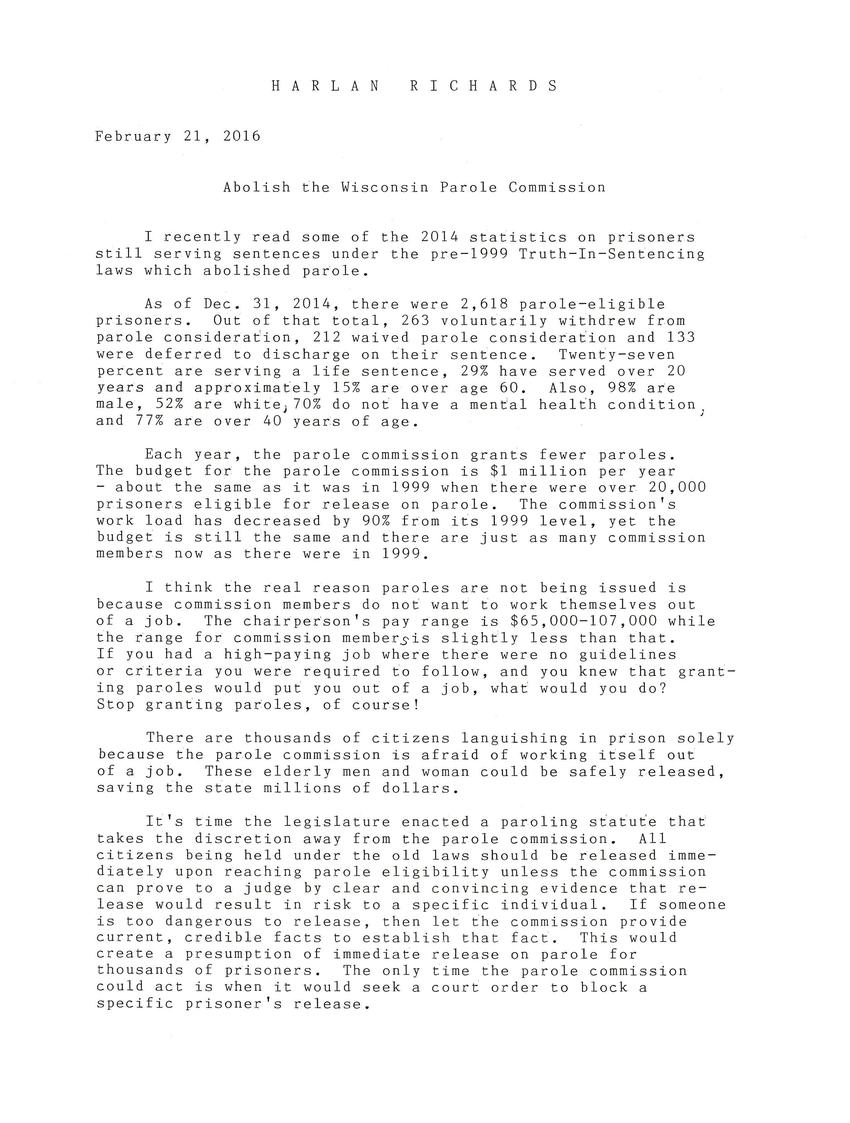
Transcription
H A R L A N R I C H A R D S
February 21, 2016
Abolish the Wisconsin Parole Commission
I recently read some of the 2014 statistics on prisoners still serving sentences under the pre-1999 Truth-In-Sentencing laws which abolished parole.
As of Dec. 31, 2014, there were 2,618 parole-eligible prisoners. Out of that total, 263 voluntarily withdrew from parole consideration, 212 waived parole consideration and 133 were deferred to discharge on their sentence. Twenty-seven percent are serving a life sentence, 29% have served over 20 years and approximately 15% are over age 60. Also, 98% are male, 52% are white, 70% do not have a mental health condition and 77% are over 40 years of age.
Each year, the parole commission grants fewer paroles. The budget for the parole commission is $1 million per year - about the same as it was in 1999 when there were over 20,000 prisoners eligible for release on parole. The commission's work load has decreased by 90% from its 1999 level, yet the budget is still the same and there are just as many commission members now as there were in 1999.
I think the real reason paroles are not being issued is because commission members do not want to work themselves out of a job. The chairperson's pay range is $65,000-107,000 while the range for commission members is slightly less than that. If you had a high-paying job where there were no guidelines or criteria you were required to follow, and you knew that grant-ing paroles would put you out of a job, what would you do? Stop granting paroles, of course!
There are thousands of citizens languishing in prison solely because the parole commission is afraid of working itself out of a job. These elderly man and woman could be safely released, saving the state millions of dollars.
It's time the legislature enacted a paroling statute that takes the discretion away from the parole commission. All citizens being held under the old laws should be released imme-diately upon reaching parole eligibility unless the commission can prove to a judge by clear and convincing evidence that re-lease would result in risk to a specific individual. If someone is too dangerous to release, then let the commission provide current, credible facts to establish that fact. This would create a presumption of immediate release on parole for thousands of prisoners. The only time the parole commission could act is when it would seek a court order to block a specific prisoner's release.
Other posts by this author
|
2021 jun 25

|
2021 may 25

|
2021 apr 23

|
2021 feb 19

|
2021 feb 17

|
2021 feb 15

|
More... |


Replies